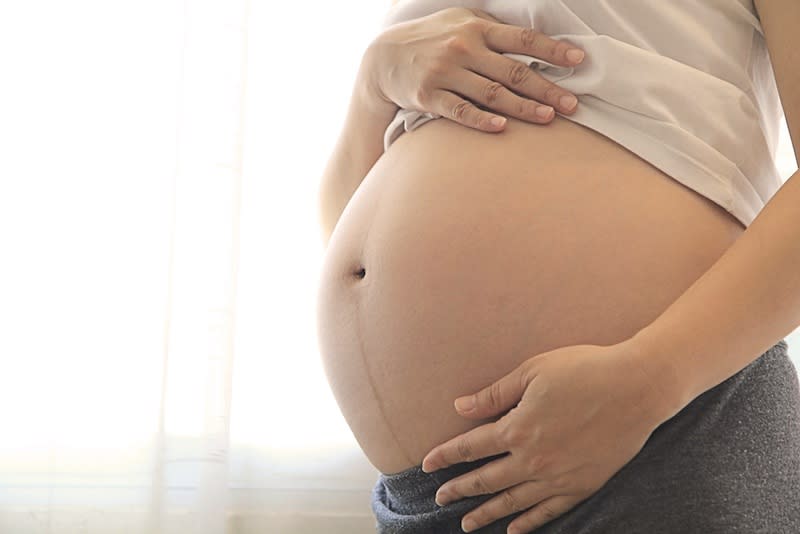How to regain sexual desire after childbirth? Malaysian expert explains everything about postpartum sex

KUALA LUMPUR, Oct 30 — Pregnancy and childbearing not only causes physical and psychological changes, but also affects sexual desire in women.
The first few months of postpartum can undoubtedly be the most challenging for any new or seasoned mums.
This, according to sexologist and sexual health practitioner Dr Rachael Winston, is because women will have certain hormonal changes that may make their vaginal tissue thinner and more sensitive post-delivery.
Hence, she added, sex immediately after delivery will usually feel different.
Citing several studies Dr Winston said that about 80 per cent of women experienced sexual problems in the first three to four months after their first delivery.
“This is something extremely normal and will eventually improve as months go by.
“It is usually due to certain changes that women experience within their body like vaginal dryness, thinning and loss of elasticity of the vaginal tissue,” she said.
Dr Winston said women who undergo perineal tear or episiotomy post-delivery will also experience pain, bleeding and soreness for some time until the wounds heal.
“Even the fatigue and low libido that they experience from the whole pregnancy itself can affect their sex life as a whole.”
She, however, said keeping a routine sex life after birth is very important.
“If there is no physical intimacy, or if it is really limited, couples may tend to start feeling like roommates, which is unhealthy for the relationship.
“This kind of feeling can develop a sense of emotional disconnection between partners and in turn may lead to resentment towards themselves, their partner or even their new-born baby.”
To get things back on the right track, Dr Winston said one very important thing during pregnancy would be communication.
“The more the communication about how each partner is coping the better.
“It is always important to tell your partner how you feel and what you might enjoy.”
She advised couples to spend more time with each other and make things more creative by throwing in compliments at each other and planning random dates out.
What contributes to the lack of libido during postpartum?
When asked what would cause a decline in sexual desire post-delivery, Dr Winston noted that hormonal and psychological changes were the main contributors.
“Hormones play a very big role in post-delivery recovery to return to normal sexual activity.
“Usually immediately following delivery, oestrogen levels in the blood will drop to their normal pre-pregnancy levels.”
She, however, added that for some women who are breastfeeding, their oestrogen levels tend to fall below pre-pregnancy levels, which would usually contribute to the lack of libido during the first few months after birth.
“This is because oestrogen plays a crucial role in vaginal lubrication and if this is low it will likely contribute to vaginal dryness, which in turn causes a decrease in their libido.
“However, these changes are usually temporary, and the body will adjust and recover once breastfeeding is stopped.”
Dr Winston also pointed out that woman who had perineal tears or episiotomy during their vaginal birth may have a longer recovery period, hence resuming sex routine too soon may increase the risk of infection.
“Caesarean delivery, on the other hand, can also affect vaginal sensation.
“The same hormonal issues can make the tissues of the vagina dry and thin, possibly leading to painful sex which will cause more discomfort than pleasure for women.”
Apart from hormonal changes, Dr Winston said sometimes the excitement of having a new-born can be overshadowed by feelings of sadness and mood swings for the mother, which are often referred to as “baby blues”.
“These feelings tend to be seen around three to five days after the baby is born and may last for two weeks.
“This is also due to the estrogen changes which occur shortly after delivery.”
According to her, common symptoms are crying, anxiety, and feeling restless or overwhelmed.
The feelings are often felt by new mothers due to the added stress and responsibility that a new-born can bring.
“Another more severe type of psychological effect includes women who develop postpartum depression (PPD), which is said to occur in 10 to 15 per cent of women in six months following delivery.”
PPD symptoms often mirror those typically found in people with major depression.
“The distinguishing factor for both ‘baby blues’ and PPD is usually the timeframe in which the symptoms occur because ‘baby blues’ should subside after a few weeks while PPD can last up until a year or longer,” she added.
Related Articles Can you have sex if you have a chronic disease? Malaysian expert advises couples to carry on Setting sex goals for 2020? Malaysian expert suggests ways to spice things up Almost a perfect ten! Malaysian woman rates husband for caring for her and six children in postpartum confinement



